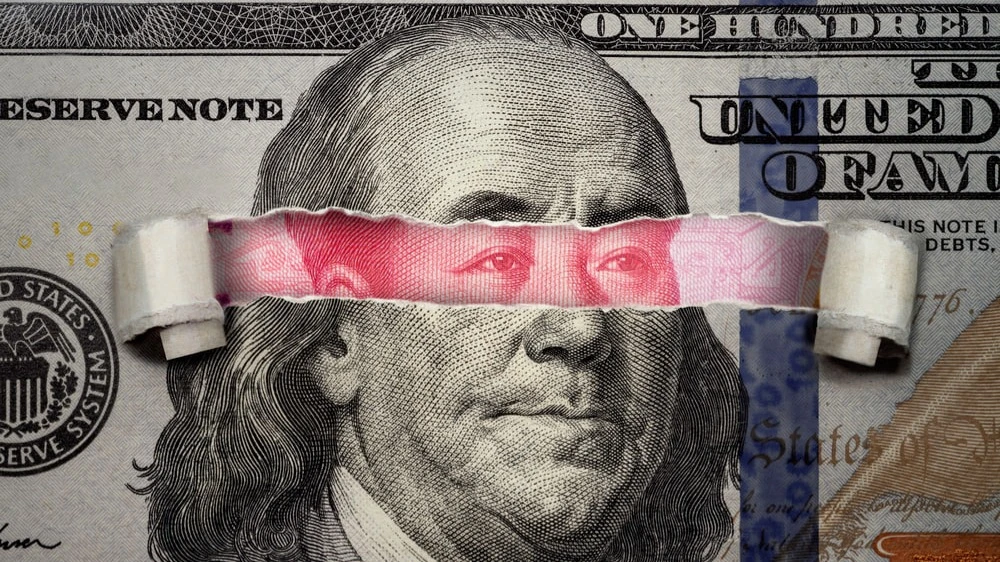The world's central banks are considering moving away from the US dollar. What are they choosing?
The euro will be the most sought-after currency in central banks' reserves over the next 1-2 years, the yuan on a 10-year horizon, a survey showed

Central banks with a combined $5 trillion in reserves are increasing investments in gold, euro and yuan amid global turmoil and political uncertainty. Gold has already become the main beneficiary of the move away from the dollar, the euro is the favorite among currencies in the short term, and the yuan in the long term. This was revealed by a survey conducted by the Official Monetary and Financial Institutions Forum (OMFIF).
Gold
One-third of the 75 central banks surveyed by OMFIF between March and May plan to increase gold holdings within one to two years, writes Reuters. That's the highest level in five years. Sovereign investors have already been buying up the precious metal at a record pace. But U.S. President Donald Trump's trade war has given gold a boost. 40% of central banks plan to increase their gold reserves over the next decade. "After several years of record gold purchases, reserve managers are doubling down on the precious metal," says the OMFIF report.
Euro and yuan
The dollar, which was the most popular currency in a similar survey last year, has now dropped to seventh place. 70% of respondents indicated that the political situation in the U.S. prevents them from investing in it - this is more than double the figure of last year. The main beneficiaries of the shift away from the dollar among currencies will be the euro and the yuan. 16% of central banks plan to increase the share of the European currency in reserves within 12-24 months (against 7% a year earlier). Next in popularity is the yuan. However, in the longer term, preference is given to the Chinese currency: 30% of respondents intend to increase investments in it, and they expect the share of the yuan in global reserves to triple to 6%;
Reuters sources who work with reserve managers say that the euro could regain ground lost since the 2011 eurozone debt crisis - by the end of the decade. If the prediction comes true, the euro's share of reserves would rise from the current 20% to 25%.
What economists say
A rise in the euro's share of global reserves is almost inevitable - not so much because Europe is now better regarded, but because of declining confidence in the dollar, Harvard University professor and former IMF chief economist Kenneth Rogoff told Reuters.
The euro is "the only real currency alternative at the moment to significantly increase its share in reserves," accounts Bernard Altshuler, head of central banking at HSBC. In his optimistic scenario, the euro's share could reach 25% in as little as 2-3 years. So does thinks Francesco Papadia, who ran the ECB's market operations during the debt crisis.
UBS Asset Management sovereign markets strategist Max Castelli told Reuters that since Trump's announcement on duties in early April, many reserve managers have been calling with questions about whether the dollar's status as a safe haven asset is in jeopardy. "To the best of my recollection, this question had never been raised before - not even after the 2008 global financial crisis," he noted. Castelli added that he is receiving more and more inquiries about the euro.
What about the dollar
Since the beginning of 2025, the dollar has decreased in value against a basket of six other major currencies by 9.6%. On June 24, the US Dollar Index (USDX) came close to a three-year low on June 12 amid markets' assessment of the possible impact of the conflict in the Middle East on global trade and US monetary policy, reports Trading Economics.
Israel and Iran have already threatened new strikes just hours after the cease-fire was announced. But oil prices have fallen - tankers continue to sail through the Strait of Hormuz. That reduces inflation risks and increases expectations of imminent Fed policy easing, putting pressure on the dollar, the investment portal said.
This article was AI-translated and verified by a human editor
